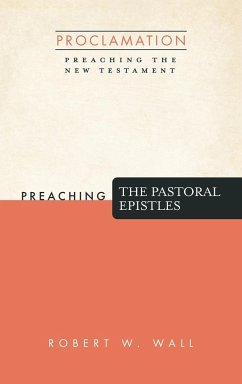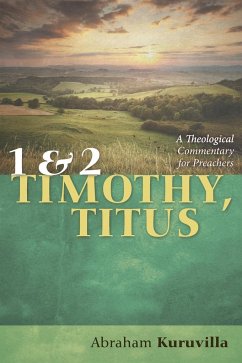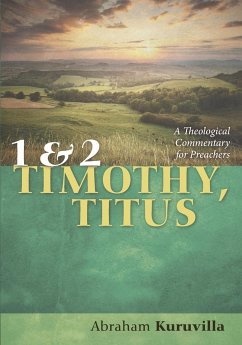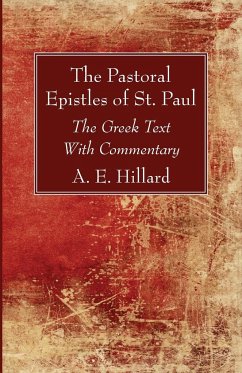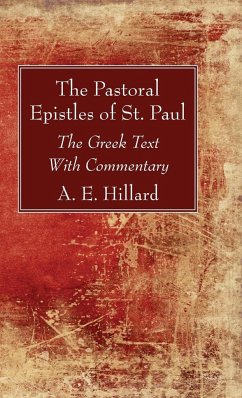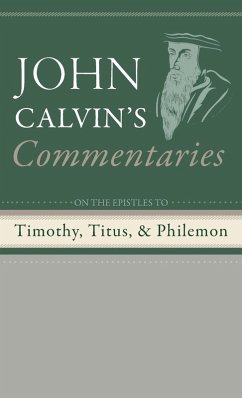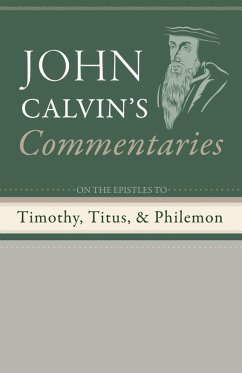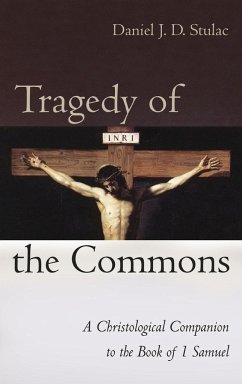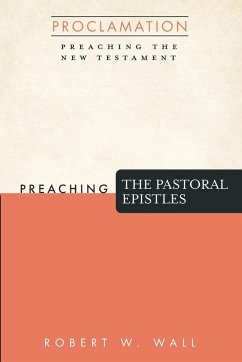
Preaching the Pastoral Epistles
Versandkostenfrei!
Versandfertig in 1-2 Wochen
18,99 €
inkl. MwSt.
Weitere Ausgaben:

PAYBACK Punkte
9 °P sammeln!
Since the second century, 1-2 Timothy and Titus, often referred to as the "Pastoral Epistles," have been read and practiced together to help order a Christian congregation's life and mission. These three letters were likely recognized early on as divinely inspired scripture and were added to the Pauline collection to help train the spiritual leaders of earliest Christianity. However, they are rarely taught in most congregations and seminaries today. Admittedly, the genre of these letters (paraenesis) is hard to preach. The primary reason for their neglect, however, is modern criticism's silenc...
Since the second century, 1-2 Timothy and Titus, often referred to as the "Pastoral Epistles," have been read and practiced together to help order a Christian congregation's life and mission. These three letters were likely recognized early on as divinely inspired scripture and were added to the Pauline collection to help train the spiritual leaders of earliest Christianity. However, they are rarely taught in most congregations and seminaries today. Admittedly, the genre of these letters (paraenesis) is hard to preach. The primary reason for their neglect, however, is modern criticism's silencing of them because most scholars think they were not written by Paul and are not aligned with either his gospel or mission. Moreover, they include instructions that are widely received today as out of sync with our modern social worlds. This Proclamation Commentary on these Pauline letters presumes both their apostolic authority as divinely inspired and human-inspiring scripture and their contemporary relevance in encouraging clergy and teachers to reimagine their roles as ministers of the gospel and spiritual leaders for today's global church.




